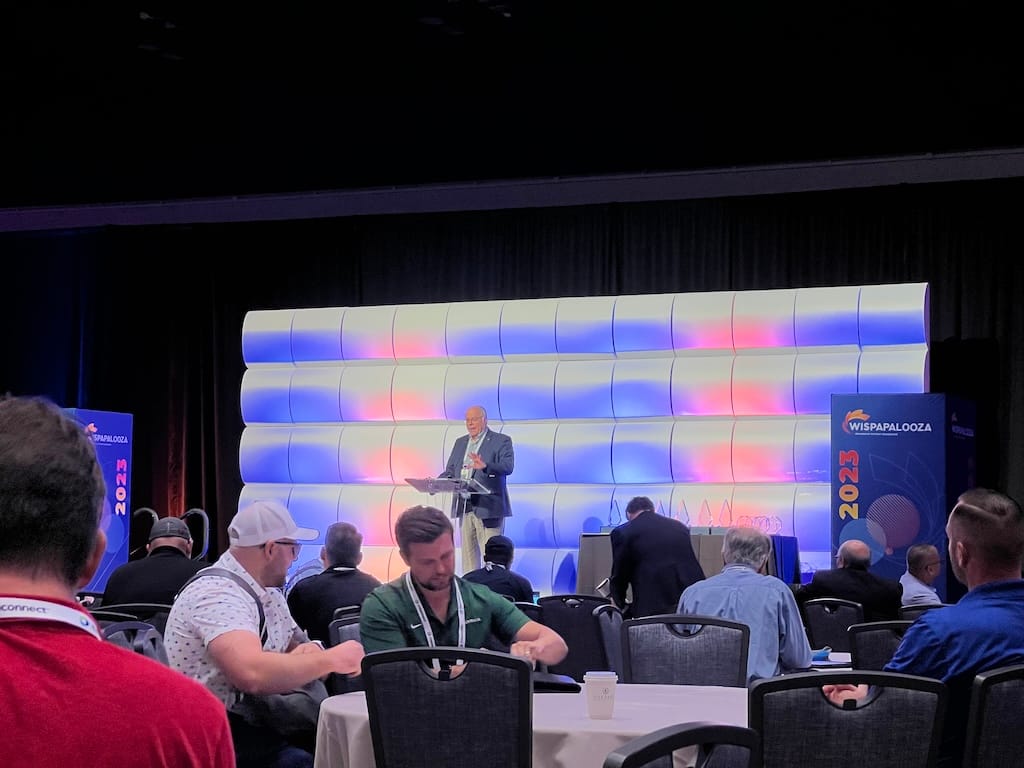WISPA Looking to Change Reliable Broadband Definition Under BEAD
The group’s policy heads said they are advocating to include unlicensed wireless.
Jake Neenan

LAS VEGAS, October 10, 2023 – The trade group representing small and fixed wireless internet providers is focused on combating a provision in the Joe Biden administration’s major broadband funding program that designates areas served with only fixed wireless as lacking adequate connectivity, WISPA policy heads said on Tuesday.
“We’re continuing our aggressive advocacy to overturn the deeply flawed decision,” said Louis Peraertz, WISPA’s vice president of policy, in an address to the group at its yearly conference WISPAPALOOZA.
The notice of funding opportunity for the $42.5 billion Broadband Equity, Access and Deployment program excludes from the definition of reliable broadband fixed wireless technology that operates on entirely unlicensed spectrum – spectrum bands not licensed to designated carriers by the Federal Communications Commission. That makes areas served by some WISPA member providers open to infrastructure projects funded by the program.
WISPA’s arguments against the provision, Peraertz said, have “received support from several congressional offices.”
The group is also pushing state broadband offices to make BEAD funds available to fixed wireless providers. Steven Schwerbel, WISPA’s state advocacy manager, said WISPA had a hand in setting Ohio’s planned extremely high cost threshold, the point at which the state will look to technologies other than fiber-optic cable to keep costs down.
“Thanks to our input, that threshold is being set in a way that will allow our members to compete for state grant dollars as widely as possible,” he said.
Pennsylvania’s broadband office is in active talks with WISPA about its high-cost threshold, according to Schwerbel.
States are in the process of submitting BEAD initial proposals to the National Telecommunications and Information Administration, due by December 27. They come in two volumes, the second of which includes the high-cost threshold and other grant awarding procedures.
WISPA is also meeting with Federal Communications Commission officials to argue for changes in the commission’s plan to reinstate net neutrality rules, saying its members do not have the market share to engage in the anti-competitive practices the rules are designed to prevent.
The FCC will vote on putting its plan up for public comment at its open meeting on October 19.








Member discussion